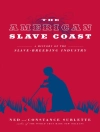When eighty-seven passengers and crew died in the shipwreck of the Royal Mail ship Egypt in 1922, the accident gave rise to a racist international press campaign against the employment of Indian seafarers, such as those who made up most of the ship’s crew. This was not unusual at a time when a fifth of the British mercantile marine’s workforce was recruited from the subcontinent. Ravi Ahuja explains the business logic behind a labour regime steeped in racist irrationalism and examines the scope for solidarity among a divided workforce in an age of imperialism – an issue that is no less relevant in our own time.
Über den Autor
Ravi Ahuja is Professor of Modern Indian History at the University of G�ttingen and has previously taught at SOAS in London and in Heidelberg. He is a social historian of South Asia in the 18th through 20th centuries. He has extensively published on the history of labour, of war, and of infrastructure. His books include Pathways of Empire: Circulation, ‚Public Works‘ and Social Space in Colonial Orissa and Working Lives and Worker Militancy: The Politics of Labour in Colonial India. He co-edited the path-breaking collection The World in World Wars. Experiences, Perceptions and Perspectives from the South.












